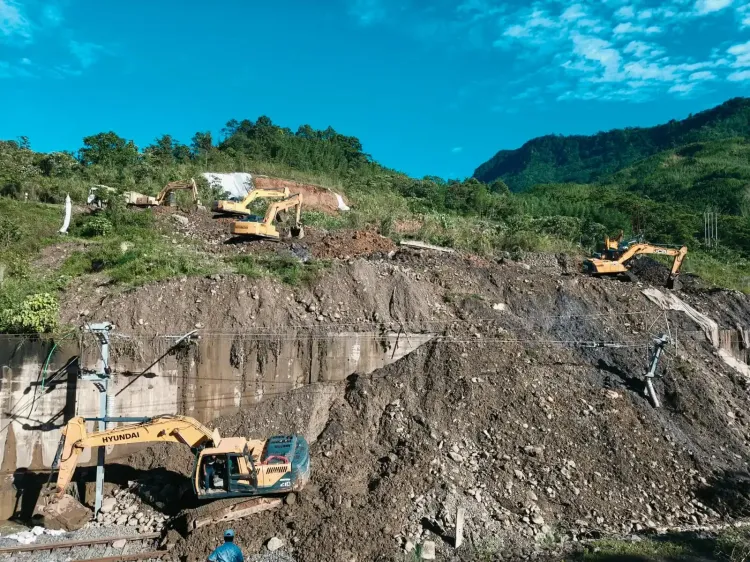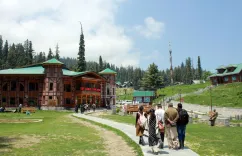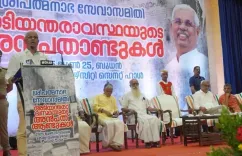Are Train Services in NE Disrupted Due to Landslides?

Synopsis
Key Takeaways
- Restoration efforts are underway to restore train services in NE India.
- Over 25 heavy machinery units and 200 workers are involved.
- Rail communication is expected to resume by Sunday.
- Passengers are advised to stay informed through official channels.
- Natural challenges, such as landslides, affect connectivity annually.
Guwahati, June 25 (NationPress) The Northeast Frontier Railway (NFR) is engaged in restoration efforts at an accelerated pace to restore train operations along the Lumding–Badarpur Hill route, which has been affected for the third consecutive day on Wednesday due to significant landslides, as confirmed by an official.
Train connectivity between southern Assam, Tripura, Manipur, and Mizoram and the rest of the nation through Guwahati continues to face interruptions since Monday evening, with landslides severely impacting the railway tracks in the hilly regions.
The Divisional Railway Manager of the NFR’s Lumding Division, Samir Lohani, has indicated that rail communication between Lumding and Badarpur is anticipated to be restored by Sunday.
NFR’s Chief Public Relations Officer (CPRO) Kapinjal Kishore Sharma reported that around 100 meters of the track has been critically damaged due to the landslide, which was instigated by a slope failure near a nearby road located merely 15 meters from the railway line.
This incident was caused by continuous heavy rainfall in the area. A high-level meeting was convened on Tuesday to address the situation.
The meeting included the Assam Chief Secretary, the NFR General Manager, and senior representatives from the National Highways Authority of India (NHAI) and other relevant agencies. A coordinated restoration strategy was finalized during this meeting, and collaborative operations are currently in progress, as per the CPRO.
More than 25 heavy machinery units, including excavators, JCBs, and dumpers, along with approximately 200 laborers, have been mobilized to accelerate the restoration efforts.
Senior officials from the Lumding Division, including the Divisional Railway Manager (DRM) of Lumding, are present at the site to supervise and ensure continuous operations.
Despite ongoing efforts, challenges persist, Sharma noted, pointing out that the slow and steady movement of loose soil from the hillside, combined with ongoing rainfall, presents considerable risks and delays.
The priority is to stabilize the hill slope first, followed by the removal of around 25,000 cubic meters of muck and debris. This process includes clearing the railway track area and the unstable sections of the hill above the tracks.
Afterward, protective measures will be implemented to ensure long-term safety and slope stability.
Until restoration is finalized, certain trains will be canceled or partially canceled for passenger safety.
The NFR authority has urged passengers to remain informed through official railway communication channels for updates regarding train schedules and service restoration.
Each year during the monsoon, numerous northeastern states, particularly Tripura, Mizoram, Manipur, and southern Assam, experience severed connections with the rest of the country for weeks due to landslides, waterlogging, and railway track damage, resulting in significant hardships for the local populace.






